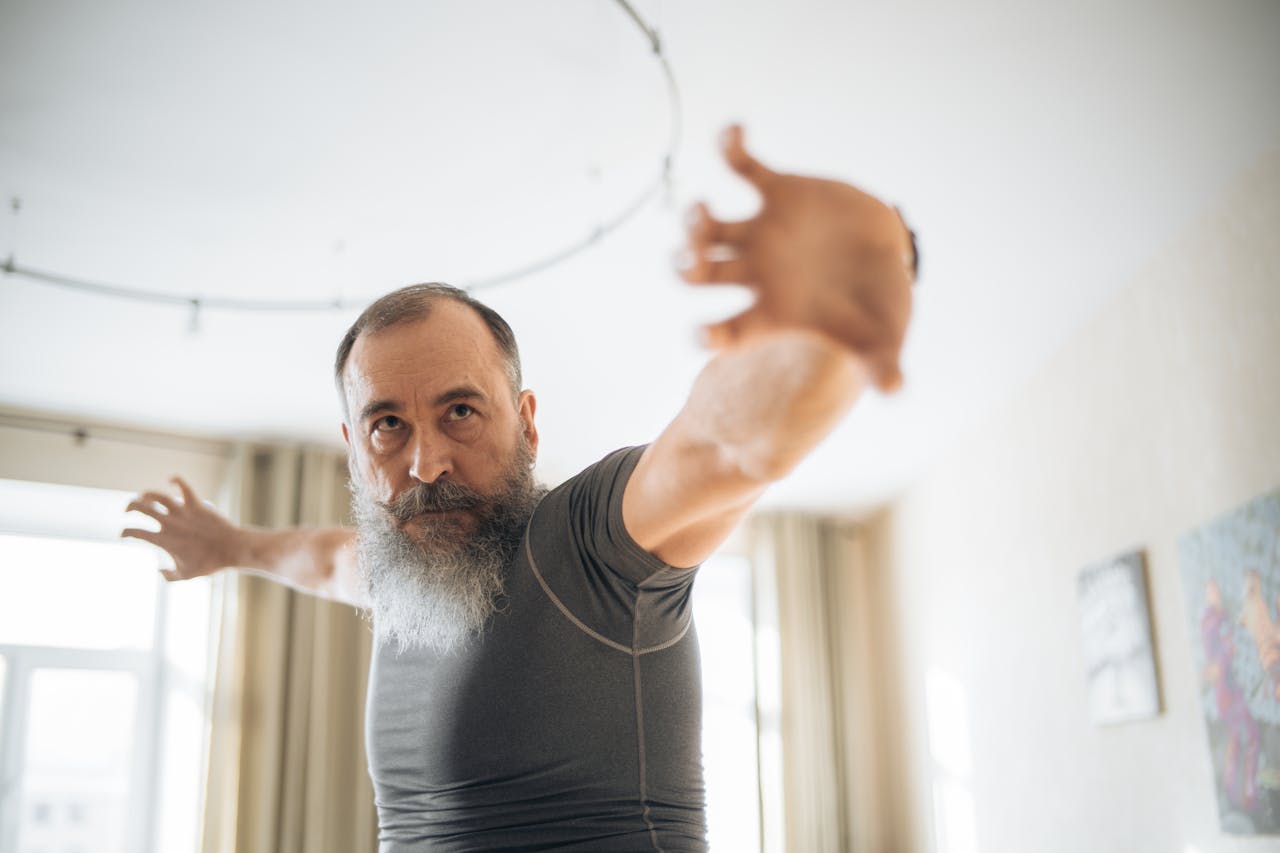A new study has shown that premature ageing may be prevented by exercise for older adults.
Exercise is great for our health ― it “can reduce your risk of major illnesses, such as coronary heart disease, stroke, type 2 diabetes and cancer, and lower your risk of early death by up to 30%,” Exercise health benefits NHS.
People who do regular physical activity have a lower risk of:
- coronary heart disease and stroke

- type 2 diabetes
- bowel cancer
- breast cancer in women
- early death
- osteoarthritis
- hip fracture
- falls (among older adults)
- depression
- dementia, including Alzheimer’s disease
And now, new research suggests that it might not just bulk up your biceps ― regular movement can “train” your immune system, too.
According to the paper, published in the journal Scientific Reports, “Ageing is associated with immune dysfunction, but long-term endurance training may confer protective effects on immune cell function.”
Ageing is associated with immune dysfunction, but long-term endurance training may confer protective effects on immune cell function. This study investigated how natural killer (NK) cell phenotypes, functional markers, and metabolism differ between endurance-trained and untrained older adults.
Their findings indicate that endurance-trained older adults have NK cells with greater functional adaptability, reduced senescence, and enhanced metabolism under inflammatory and pharmacological stress.
Why might exercise “train” our immune system?
This (admittedly small) study focused on nine participants with an average age of 64. They looked at their natural killer (NK) cells, a type of white blood cell which can spot and get rid of diseased cells.
These can sometimes include cancerous cells.
The scientists split the participants into two groups (those who exercised regularly and those who did not) and then compared their blood NK cell count.
In a previous study, they found that obesity and a sedentary lifestyle can trigger a process of premature ageing of defence cells.
This made them investigate the other side of the story, that is, whether an older adult who has been practising endurance exercises for more than 20 years may have a better-prepared immune system. And that’s indeed what they found.
In these individuals, NK cells functioned better in the face of an inflammatory challenge, in addition to using energy more efficiently. Therefore, it’s as if exercise also trains the immune system.
When they compared the cells of trained older adults with those of non-athletes of the same age, they found that those with a history of endurance exercise had fewer inflammatory markers and more anti-inflammatory markers.
Long-term endurance training is associated with protective ‘immunometabolic’ adaptations in NK cells in older adults. In other words, the cells become more mature and effective, less senescent. This makes them metabolically better prepared to respond to inflammatory or pharmacological stressors.
Exercise May ‘Train’ Our Immune System Against Premature Ageing
Photo by Mikhail Nilov: https://www.pexels.com/photo/bearded-man-stretching-arms-6975767/
Photo by RDNE Stock project: https://www.pexels.com/photo/woman-in-purple-and-pink-jacket-smiling-7020802/


